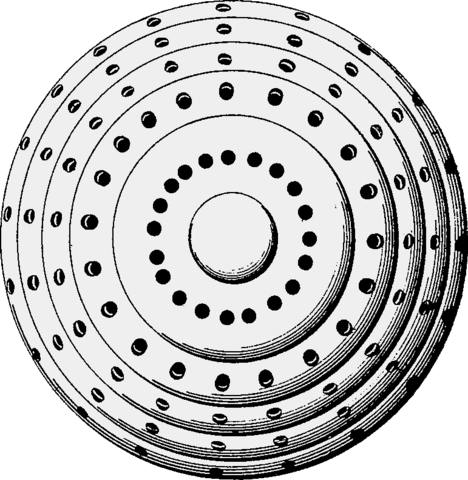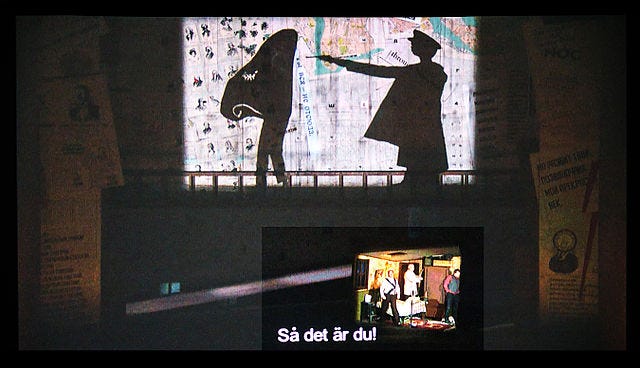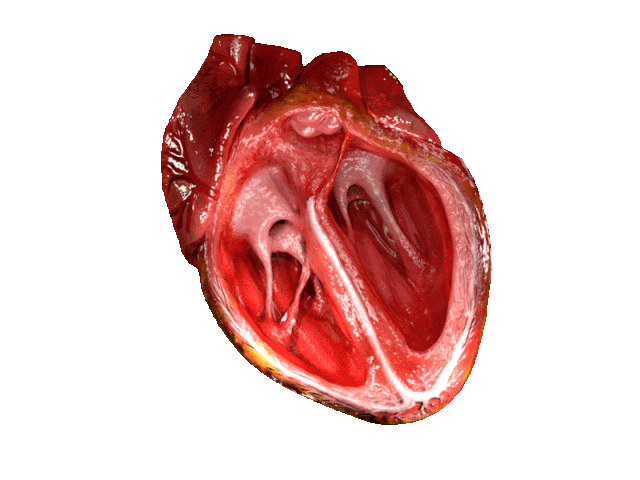Dear Gentle Readers,
despite the title, the article I happen to be working on about organ transplants isn’t actually the inspiration for this post. Literature is, and my recent reading of the Philip Roth novella, The Breast, which is astonishingly good, however much you might have soured on Roth—too white, too old, too misogynistic, too dead.
My friends, whatever annoying or unappealing aspects there are to Roth the writer (not least how full of himself he was), he can pull off some damn good writing. I finished The Breast in under two hours, which wasn’t much for teenage reader me, and it is a very skinny little book. But it’s a lot for 46-year old me. Anyway, it’s great, and more poignant than outrageous, once you get over your amazement that he’s really writing about a man who is a breast, and writing about it seriously, with no smirks:
I am a breast. A Phenomenon that has been variously described to me as "a massive hormonal influx, "a endocrinopathic catastrophe" and/or "a hermaphroditic explosion of chromosomes" took place within my body between midnight and 4 A.M. on February 18, 1971, and converted me into a mammary gland disconnected from any human form, a mammary gland such as could only appear, one would have thought, in a dream or a Dali painting.
Roth comes right out in the novel and comments on the echoes in this book, where a man turns into a giant mammary organ, with The Nose, where a giant nose goes running around without its person, and with The Metamorphosis, wherein a man wakes up as a giant bug. He also asks, “Did fiction do this to me?” But his doctor denies this:
“How could it have?” asks Dr. Klinger. “No, hormones are hormones and art is art. You are not suffering from an overdose of the great imaginations.”
To which David Kapesh, the professor-turned-mammary gland, responds, still hoping to find some meaning in all this,
“Aren’t I? I wonder. This might well be my way of being a Kafka, being a Gogol, being a Swift. They could envision the incredible, they had the words and those relentless fictionalizing brains. But I had neither, I had nothing—literary longings and that was it. I loved the extreme in literature, idolized those who wrote it, was virtually hypnotized by the imagery and the power—"
Dr. Klinger scoffs, “And? Yes? The world is full of art lovers—so?” and David presses on, “So I took the leap. Made the word flesh. Don’t you see, I have out-Kafkaed Kafka.”
At which the doctor laughs, as though his patient, a sightless, faceless, 155-lb female human breast, meant only to be amusing.

I’ve already dedicated a Live More Lives essay to the subject of metamorphoses. But I don’t think we have considered, in our exploration of the manifold experiences unattainable in reality and available through fiction, the particular, if varied, experience of becoming a giant organ or appendage. Instead of a human bearing a nose, you are suddenly looking at a man who is a nose—your nose!—running down the street. Instead of a woman with breasts, you’re a man who is a breast. The possibilities are endless. But I do not mean that we should celebrate a kind of men-as-body-parts (or body-parts-as-men) genre. Genre writing is formulaic and boring.
To make a human breast, just sitting on its own in its special giant breast hammock, into a subject worthy of literature, takes something special. So we won’t just run through all the possible organs and body parts, but rather focus on what great literary experiences can be generated through individual parts of the body—not only the weird, attention-getting, disembodied, anthropomorphized body parts running around in uniform—like in Nikolai Gogol’s story, The Nose, where the body part in question is missing from the face in normally resides on.
First the barber finds it baked into a loaf of bread his wife made, recognizes the nose as that of collegiate assessor ‘Major’ Kovalyov, one of his regular customers, and tries to throw it into the river. Much ridiculousness ensues. The nose appears to have become life sized as it runs around pretending to be human, dressed in the uniform of a high-ranking officer, with a tricornered hat. It rides in a carriage. It prays piously in church. It refuses to come home.
Things only get worse for the nose’s rightful owner from there:
To seek satisfaction of the the actual department in which the Nose had declared itself to be serving would be sheerly unwise, since from the Nose's very replies it was clear that it was the sort of individual who held nothing sacred, and, in that event, might lie as unconscionably as it had lied in asserting itself never to have figured in its proprietor's company.
Upon getting his nose back eventually—after it is apprehended at the coach station, intending to leave the city—and finding that not even the doctor can get it to stick back on, its owner is told:
Wash often in cold water, and I assure you that you will be as healthy without a nose as with one. This nose here I should advise you to put into a jar of spirit: or, better still, to steep in two tablespoonfuls of stale vodka and strong vinegar. Then you will be able to get a good sum for it. Indeed, I myself will take the thing if you consider it of no value.

The wonderful thing here is that you can do anything in literature, and through its magical subjectivity-creating properties, you can experience what it is like (or what it might be like, rather) to be absolutely anything.
There is something giddiness-inducing in reading about something so entirely impossible that we are completely aware of its artificiality, of its inability to occur anywhere outside fiction and the mind that reads it. We’re experiencing the wild, unhinged freedom of a writer who has realized that they can write about ANYthing! Doing ANYthing! Yahooooo! Sometimes the writer’s joy in this is palpable.
And sometimes the magic act remains very modest, or restrained. Or that freedom is used to let us know in a much more sober way just who’s casting the spells and how powerful they are. In Friday’s Live More Lives for paid subscribers, we talked of the way a writer (specifically, J.M. Coetzee, from whom I learn a lot) can undermine our wilful suspension of disbelief, in Coetzee’s case, with metafictional devices including commenting on the artificiality of the texts, the difference between a thing or a person and the words that describe them, which we take for their actual existence, which stick in our minds as one and the same.
Gogol, or other creators of organ and appendage-focused fiction, appear to want to challenge themselves, to push their magical reality-creating powers to their extreme, to dare us to disbelief. And to enjoy with us the result: total joyful going-along-with the preposterous fantasy, because it’s done so very well, or even just because it’s so very, very cheeky.
And yet it bears remembering—even if there are none of those metafictional devices designed to draw our attention to the artificiality—that realism is equally fictitious.
Let’s consider Mend the Living, a novel by Maylis de Kerangal that I’ve mentioned several times here and which centres around a grippingly real account of a heart transplant or, speaking of noses, the nasal telepathy practiced by Saleem Sinai, the protagonist of Salman Rushdie’s overflowing, brilliant Midnight’s Children, or—to return to internal organs—what about that other notorious Philip Roth novel, Portnoy’s Complaint, in which Alexander Portnoy masturbates with the help of a liver he sneaks from the fridge, and which is later served by his unsuspecting mother at dinner?1
The heart transplant and the hepatic sexual aid, which are not obviously impossible (though of various degrees of unlikelihood2), and which are described using the techniques of realist fiction, are, we forget at our peril, just as fictional as the nose-given telepathy by which Saleem communicates with his fellow children of midnight. (The children of midnight, in Rushdie’s novel, are those born at the moment of Partition at midnight on August 15th, 1947 when a sudden change of borders in the dissolution of the British Raj produced the independent nations of India and Pakistan—and the creation of massive numbers of refugees as eighteen million people abruptly migrated from one new country to another, with violence and suffering resulting in the deaths of perhaps a million people).
Even the totally historically accurate or the mundane and statistically probable3 fiction is still just a piece of art, an imaginary structure. Although something like the realistic experiences conveyed through fiction might exist in the real world, they too are particularized, felt-from-inside experiences you can actually have no way into but by reading about them, and to be really great, they too would really benefit from a delirious sense of freedom on the part of the writer. Which, like everything else about fiction, you get to experience vicariously as the lucky, lucky reader. As Gogol’s narrator reminds us slyly in The Nose,
And the strangest, most unintelligible fact of all is that authors actually can select such occurrences for their subject!
Or any others, all of them the products of your wilful suspension of disbelief.
A little announcement
For the next few months, Live More Lives will be moving to an occasional schedule as I focus on completing some fiction writing, and as I try to sleep my way through post-COVID symptoms. Paid subscriptions will be paused during this time. I’ll send out an email to all of you once I’ve figured what exactly this little sabbatical will look like! Please continue to share Live More Lives with your literature-loving friends, as I have much booksy writing on the intersection of fiction and experience in store for you. Already partly in the books, so to speak, are essays on the limits of language; the experience of the stars; the responsibilities of writers4; prehistory; writing and freedom; suffering in literature; pathos and shame; counter-revolutionary mainstream fiction; and much more.
I wish you many unlikely imaginative adventures this week, friends.
-Carlyn
Oh my, this Wikipedia entry about the book pulls no punches (nor does its subject deserve for any punches to be pulled): “Progress on the novel was slow because Roth was suffering from writer's block relating to his ex-wife, Margaret Martinson, and the unpleasant prospect that any royalties generated by the novel would have to be split equally with her. In May 1968, Martinson was killed in a car crash in Central Park. Roth's writer's block lifted and, following Martinson's funeral, he traveled to the Yaddo literary retreat to complete the manuscript.”
Chance and the amazing unlikelihood of the sequence of events that must occur in precise timing in order for the heart of an unlucky donor to reach the body of a fortunate recipient is a subtle theme throughout de Kerangal’s graceful novel.
(which—as an aside—is interesting because it is so improbable for any one of us to exist as ourselves right now at all)
I haven’t said a single thing today about the global shame and catastrophe that is what is happening in Gaza now. Words are starting to fail me. But writer Ben Ehrenreich has a useful curse that reflects my feelings about the responsibility of writers (many of whom have remained very, very silent about Palestine after fruitful careers founded on freedom of expression) to condemn the ongoing, Israel-led, US-funded destruction of every living thing in Gaza—including its culture, its writers, and its readers—that has been accompanied by a disturbing reduction of the space for free speech, particularly in Europe and North America. Ehrenreich writes: “Writers who are silent now: stay silent. May all words turn to ash in your mouths.”





